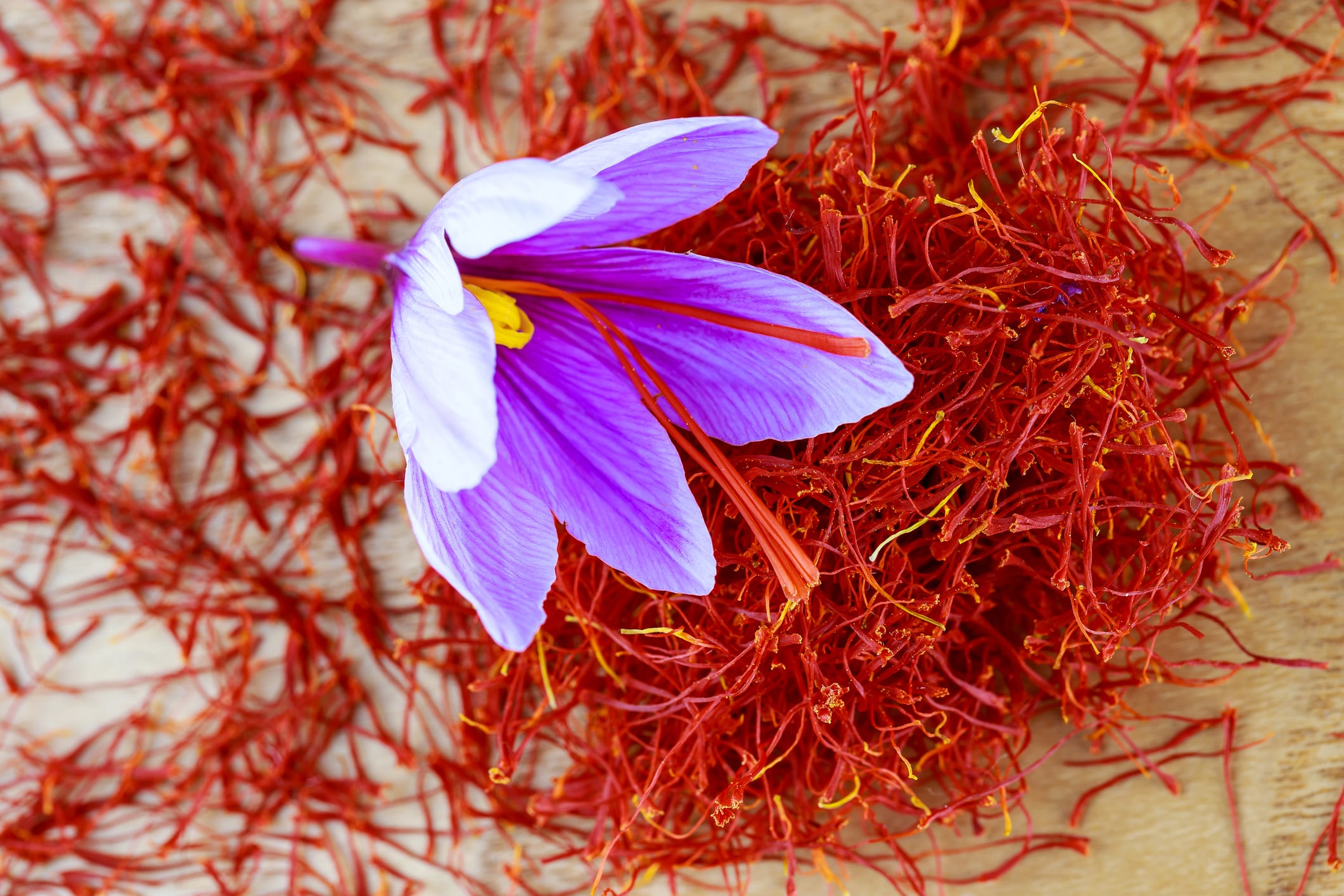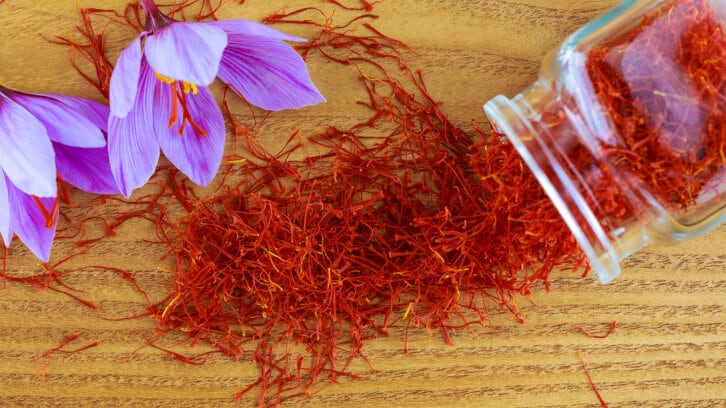Twelve weeks of supplementation with 28 mg per day of Affron led to improvements in depressive symptoms in the majority of participants. Specifically, 72% of participants in the saffron group showed significant improvement compared to 54% in the placebo group.
Moreover, those consuming Affron experienced a 53% drop in low mood symptoms following the three months of supplementation, as measured by the DASS 21 (Depression, Anxiety, Stress Scale), scientists from Clinical Research Australia, Murdoch University and Deakin University in Australia, and Spain-based Pharmactive Biotech Products SLU reported in The Journal of Nutrition.
Pharmactive funded the study.
Saffron and mood
Saffron is derived from tendrils taken from the flowers of the Crocus sativus L. plant. As a spice, saffron has been in trade and used in culinary applications for centuries and has long been considered the world’s most expensive by weight.
Each saffron plant produces only one flower with a three-branched stigma emerging from its style. The saffron stigmas are the red-colored, thread-like parts of the female organ of the flower, each weighing only 2 mg to 2.5 mg. Traditionally, saffron planting, harvesting and processing is done by hand. The time-consuming labor required makes saffron the most expensive spice in the world, with wholesale and retail saffron prices ranging from $800 to $2,500 per pound.
More recently, saffron extracts have been investigated for their cognitive benefits in mood, memory and in ameliorating disorders brought on by cognitive decline.
The new study is reported to be the largest conducted to date on saffron, investigating its effects in 202 generally healthy adults with subclinical depression.
“The mood-enhancing effects of Affron have been regularly and comprehensively investigated,” stated Inés Morán, PhD, scientific studies manager at Pharmactive, in a press release.
“However, all of the previous trials involved smaller sample sizes and durations, typically ranging from 40 to 80 people over a period of four to eight weeks in populations with overt mood disorders. This is our most robust trial yet, designed to examine the safety and efficacy of Affron over a longer treatment duration and with a much larger group of volunteers.
“Based on the findings from previous trials, we projected Affron supplementation could help brighten the spirits in adults experiencing mild mood dips and improve sleep quality, and the results we achieved surpassed our estimation.”
Affron is naturally derived from 100% Spanish Crocus sativus L., and standardized to at least 3.5% safranal and crocins.
Study details
Led by Adrian Lopresti, PhD, the researchers recruited 202 people with depressive symptoms between the ages of 18 and 70 to participate in their randomized, double-blind, placebo-controlled trial. Participants were randomly assigned to either the Affron group (28 mg per day) or placebo for three months.
Results showed that, in addition to the improvements in DASS 21 scores, Affron was associated with improvements in mood and stress as early as five weeks into the study. Participants reported reduced daily feelings of sadness and stress in the saffron group.
Dr. Lopresti and his co-workers also reported that while there were no overall differences between the groups for sleep quality, analysis at the subgroup level revealed an important nuance: Among participants who reported greater sleep disturbances at baseline, Affron supplementation led to a significant improvement.
These individuals experienced a 12% reduction in sleep disturbance as opposed to 8% in the placebo group, and a 15% reduction in sleep-related impairment, suggesting the saffron extract may benefit people with sleep problems.
“The results of this 12-wk, randomized, double-blind, placebo-controlled study add to the body of evidence of the antidepressant effects of a saffron extract (Affron) but in a population of generally healthy adults with subclinical depression,” the researchers reported.
“Based on the results of the primary outcome measure (DASS-21 depression score), saffron at a dose of 14 mg twice daily was associated with a statistically significant greater reduction in depressive symptoms compared to the placebo.”
Source: The Journal of Nutrition, 2025, Vol. 155, Issue 7, Pages 2300-2311, doi: 10.1016/j.tjnut.2025.05.024. “An Examination into the Effects of a Saffron Extract (Affron) on Mood and General Wellbeing in Adults Experiencing Low Mood: A Randomized, Double-Blind, Placebo-Controlled Trial”. Authors: A.L. Lopresti et al.





